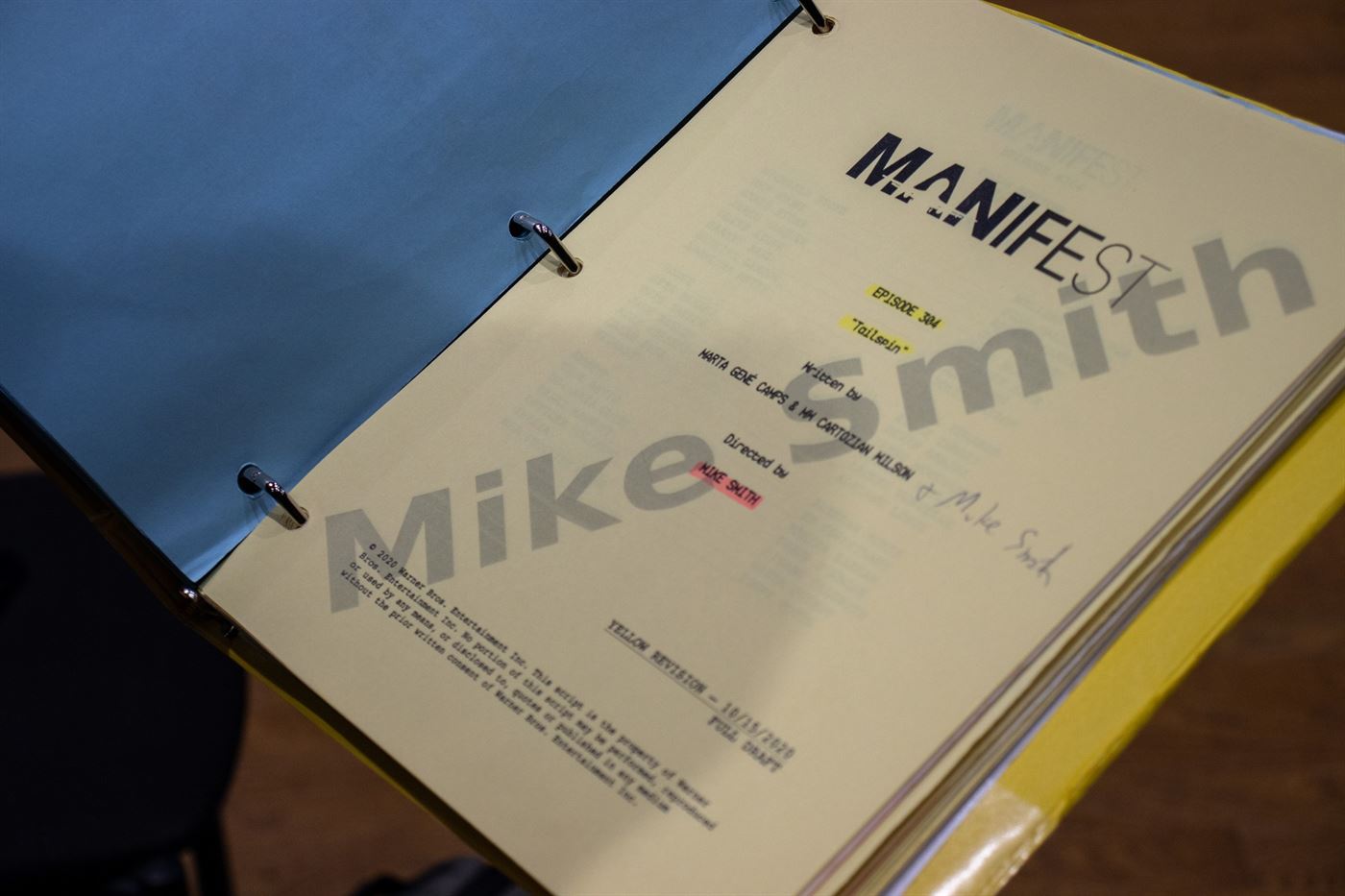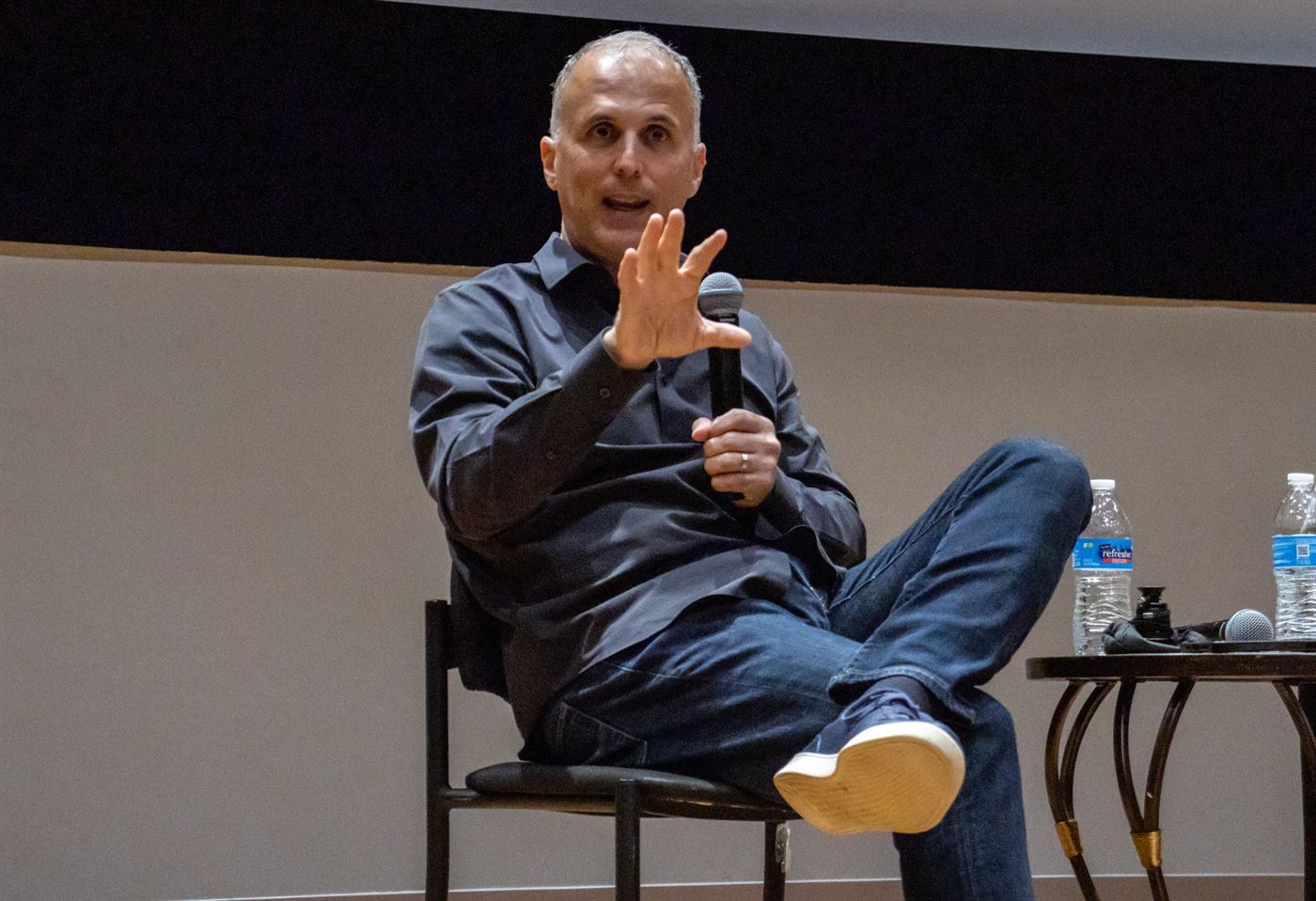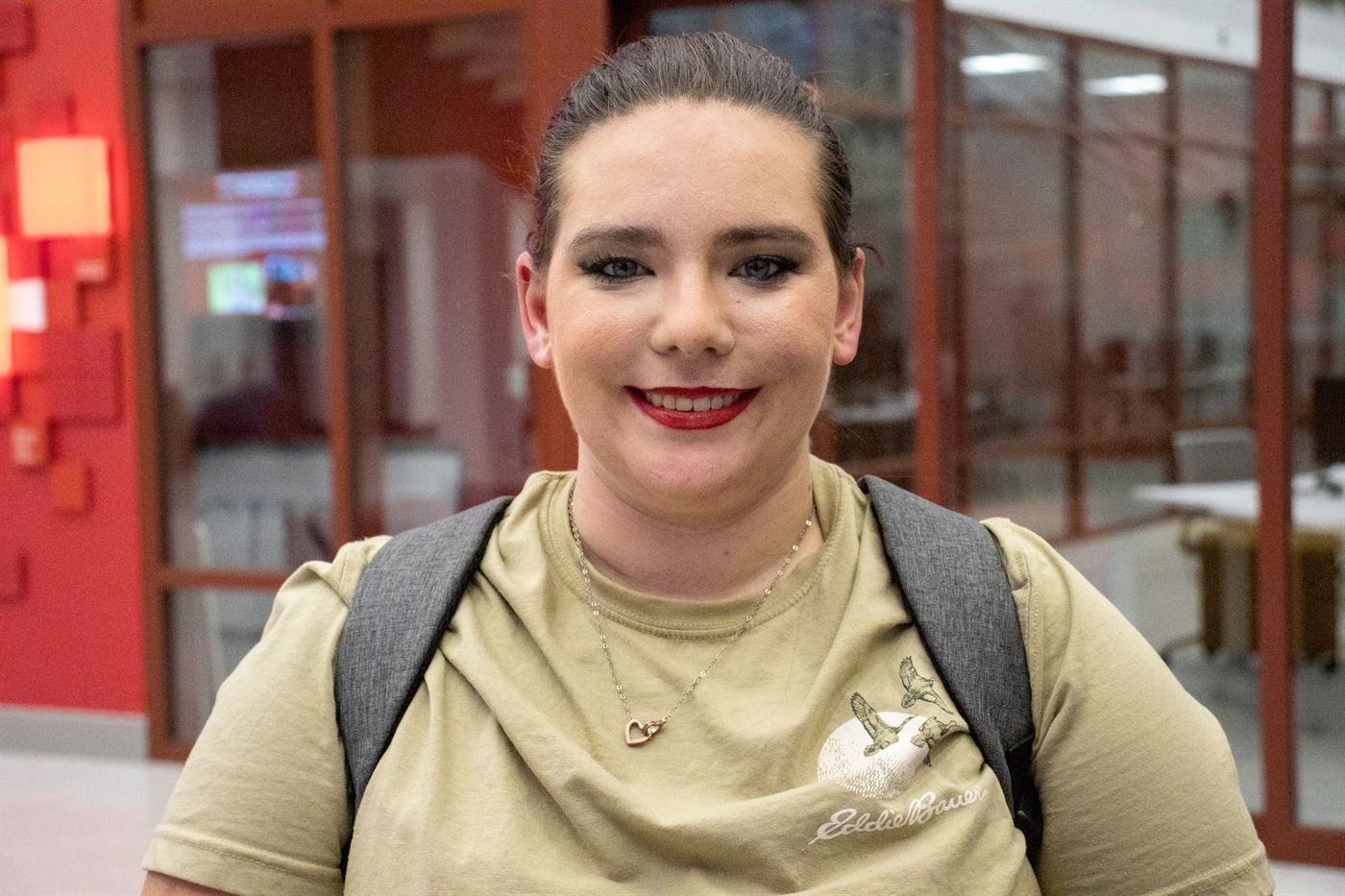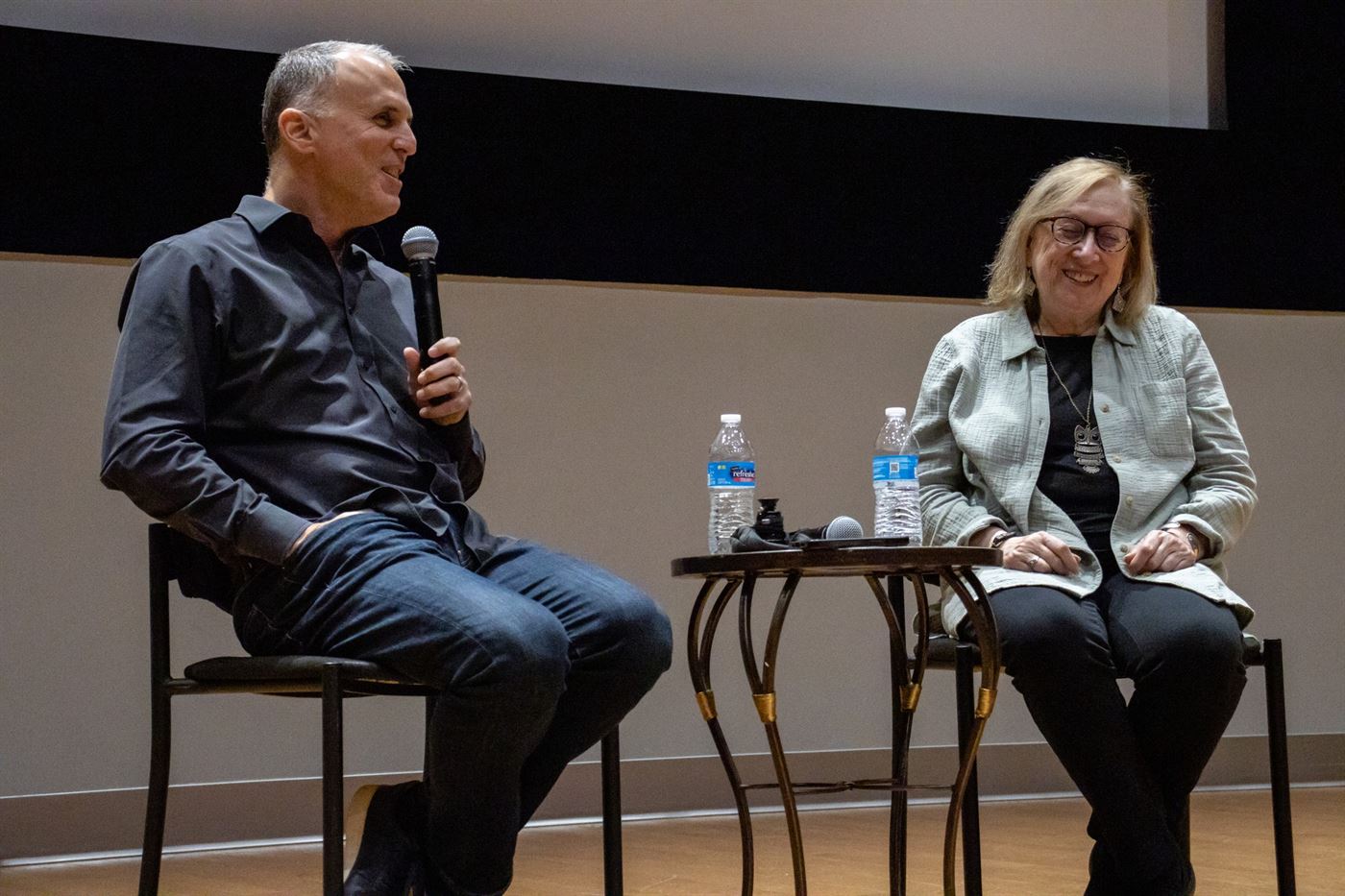Michael Smith has held job titles such as production manager, second unit director, assistant director and producer. But he came to Montclair State University’s Film Forum on Oct. 18 as a director.
Smith began his career working on films and television shows like “The Sopranos” and Woody Allen’s film “Man On The Moon.” In 2007, he was given his first directing opportunity on the set of “Law and Order: Criminal Intent.” More recently, Smith has directed episodes of television shows such as “Bull” and “Law and Order: Special Victims Unit.”
He has also worked on shows like the Netflix series “Manifest,” The forum’s viewing was season three, episode four, “Tailspin.”

Smith brought a large binder with every script, note, blocking sheet and drawing for camera positions for certain episodes in “Manifest.”
Katie Lawrence | The Montclarion
In addition to the showing, Smith discussed his background working in the industry and how he got his start.
“I never imagined I’d be doing this,” Smith said.

Director Michael Smith visited Montclair State’s Film Forum on Oct. 18.
Katie Lawrence | The Montclarion
Smith said he thought you needed to have connections in order to break into the industry. But even with his parents working as a teacher and a lawyer, two occupations unrelated to the industry, he remains grateful for the opportunity he has been given.
Mackenzie Guarascio, a junior film and television major, was able to relate to the director since both are from Long Island, New York. She took notice of Smith’s way of moving up in production.
“I was interested in how [Smith] was able to go through the ranks,” Guarascio said.

Mackenzie Guarascio, a junior film and television major, was able to relate to the director.
Katie Lawrence | The Montclarion
When discussing his work on “Manifest,” Smith described “Tailspin,” as well as the episode before it, “Wingman,” as the most difficult to film because it was done during the coronavirus (COVID-19) pandemic. At one point, he was directing over Zoom.
But he stressed the importance of organization as he brought with him a large binder with every script, note, blocking sheet and drawing for camera positions for these episodes. Film Forum professor Roberta Friedman can attest to this trait in Smith as she describes him as “both talented and extremely prepared and organized.”
Kaila Houghton, a senior film and television major, said this resonated most with her.
“I’m really going to take away being organized from this because look how far [Smith] has gone,” Houghton said. “And he showed us how organized he was, so I think that is really going to stick with me in the future.”

Kaila Houghton, a senior film and television major, says she is going to remember Smith’s advice about organization.
Katie Lawrence | The Montclarion
Smith also described the visuals he developed for “Tailspin.” He stated he does not look to change anything about the show; he simply puts his own spin on the episode to make it his own.
“[I look to] take it to [slightly] another level,” Smith said. “You don’t want to reinvent the wheel; that’s a common expression used in our business.”
Smith really does make the episode his own by bringing his visions to life with the help of the cast and crew. He explained how he draws out scenes and uses a finder to get an idea of what the audience will see on screen. He also ensures the vibes on set are fun and light with no yelling or stress and good pacing. This is all correct, according to Friedman.
“[Smith] is personable,” Friedman said. “[He] works well with actors and develops a connection with them as well as with his crew.”
Not only is he personable with cast and crew according to Friedman, but he is also personable with Montclair State students. After the viewing and questions, students came up to continue talking with him.
As students asked questions, Smith left an important piece of advice.
“Smart people borrow, genius people steal,” Smith said.
He was implying that you can use an established technique but are technically not stealing from another work of cinema. You could even take techniques from Steven Spielberg and Alfred Hitchcock and reinvent them to make them yours.



